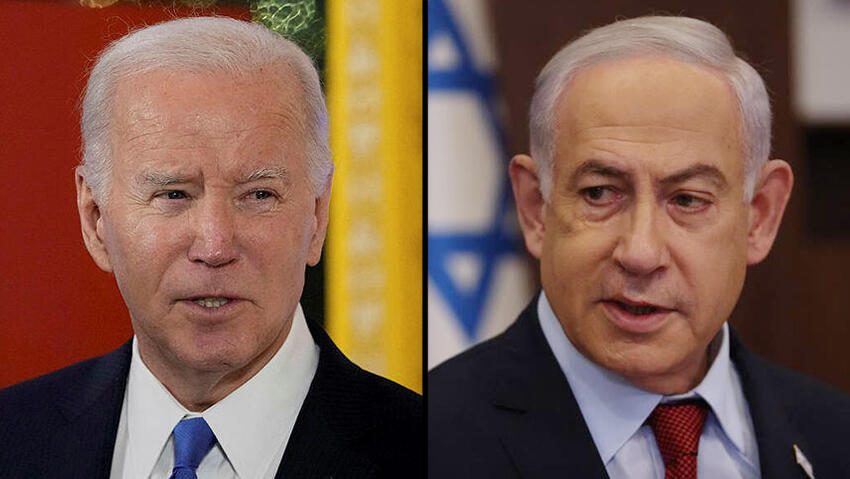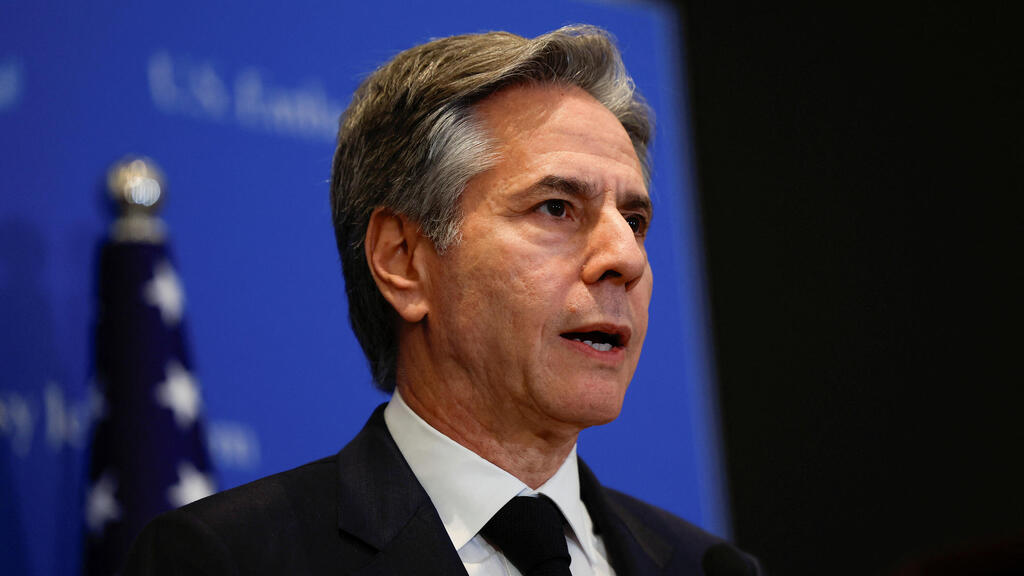Getting your Trinity Audio player ready...
The White House published a statement Friday saying that U.S. President Joe Biden spoke with Prime Minister Benjamin Netanyahu about "developments in Gaza and Israel." This marks their first conversation since December 23, with reports suggesting tensions between the leaders are escalating regarding the future following the war in the Gaza Strip.
More stories:
According to the Prime Minister’s Office, the two had a "good conversation," lasting for 40 minutes, during which Netanyahu "reviewed Israel's actions in various sectors and reiterated Israel's commitment to achieving the war’s objectives, including the return of Israeli hostages."
According to an NBC report published on Wednesday, the Biden administration is bypassing Netanyahu in plans for post-war Gaza, discussing the future of the Strip and the region with Saudi Arabia and other moderate Arab nations.
Quoting officials, the American broadcaster said the U.S. president had grown frustrated with Netanyahu as evidenced by the lack of communication between the two leaders in recent weeks after they had spoken regularly in the wake of the Hamas attack on October 7.
"The officials said the Biden administration is trying to lay the groundwork with other Israeli and civil society leaders in anticipation of an eventual post-Netanyahu government. In an attempt to work around Netanyahu," NBC News said in the report.
The U.S. has come out in support of Israel in its war and its objectives to eliminate Hamas as a military power and remove its leaders from their rule over the embattled Strip, but Netanyahu had rejected any discussions of negotiating an end to the Israel-Palestine conflict and the eventual establishment of a Palestinian State, a prerequisite for Saudi Arabia in a possible normalization deal with Israel and in its involvement in the rebuilding of Gaza without Hamas.
U.S. Secretary of State Atony Blinken, who visited the region for a fourth time since the war began, reportedly told Netanyahu that "ultimately there is no military solution to Hamas, according to the officials, and that the Israeli leader needs to recognize that or history will repeat itself and violence will continue." But, the officials said, Netanyahu was unmoved.





